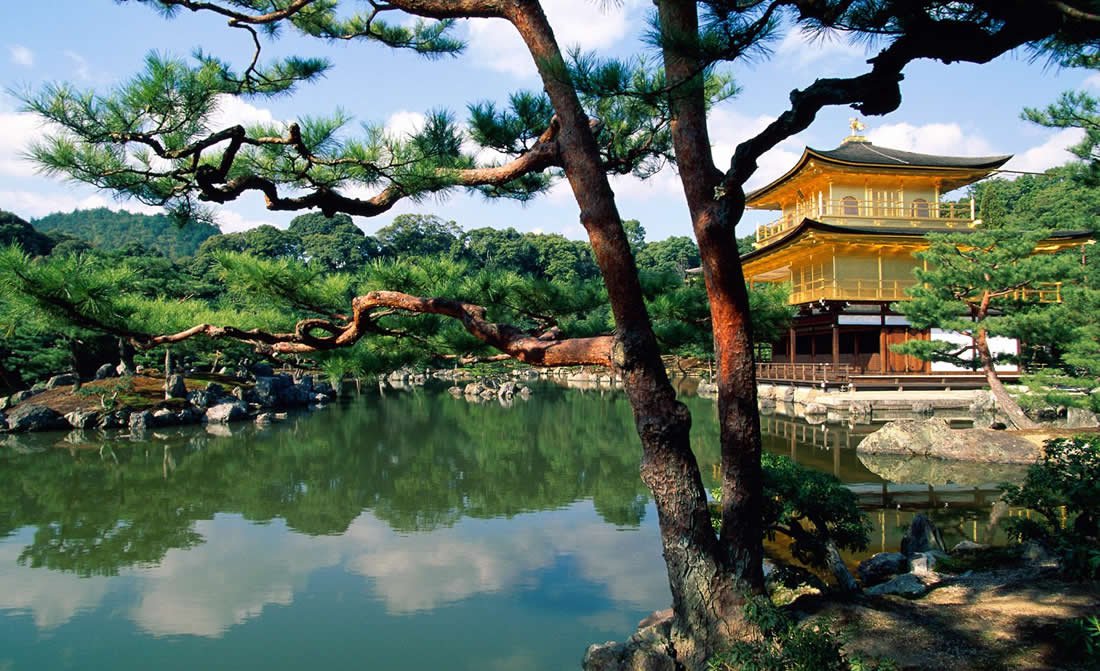Day 9
Excursion starts:
Today is a day at leisure, to relax and enjoy discovering Kyoto on your own. However, if you wish, you can enjoy private cultural experiences or additional excursions:
Option 1. Day trip to Nara
This morning at 9:00am you will meet your private guide and your chauffeur to Nara, the ancient capital of Japan in the 8th Century. Start your visit from Nara Park; a large pleasant park in the center of the city, commonly known as “Deer Park,” home to hundreds of freely roaming deers, regarded in Shinto religion as messengers of the gods and symbol of the city. A large numbers of historical sites in Nara are located in and around this park.
Visit Kasugataisha Shrine, originally established in 768A.D. as the shrine of the powerful Fujiwara Family. See the magnificent interior famous for its numerous bronze hanging lanterns, as well as the many stone lanterns that lead up to the shrine. Move on to the gigantic Todaiji temple, reputedly the largest wooden buildings in the world and one of Japan’s most famous and historically significant temples to be overwhelmed by the giant statue of Buddha Virocana.
Finish your Nara tour in Naramachi, the former merchant district of Nara, which was not affected by bombings during the Second World War. The district features several traditional warehouses and residential buildings including the Naramachi Koshi-no-ie, an old residence open to the public for free. Small boutiques, shops, cafes and restaurants can also be found along the narrow lanes in the district. Back to the hotel by 17:00pm and enjoy time at leisure.
Option 2. Full day visit in Arashiyama
This morning at 9:00am, meet your English speaking guide and your driver for a visit of Arashiyama, surrounded by nature and providing a welcome break from the city’s hustle. Start at the Tenryu-ji Temple. This famous Zen Buddhist temple is the head temple of the Tenryu-ji branch of Rinzai Zen sect and part of World Cultural Heritage monuments. It has an excellent garden with a pond stroll that was laid out by a garden designer of genius.
From here, take a relaxing stroll around the Bamboo Forests, designated as one of the three most beautiful bamboo forests in Japan. Here, the sound of the leaves rustling in the wind is nice to listen to and gives a peaceful atmosphere. Arrive at Okochi Sanso, a splendid mountain retreat, previously occupied by Ōkōchi Denjirō, a silent screen actor. Take a leisurely walk through the villa's beautiful gardens in each season and savor the fine views of Kyoto city in a distance.
Continue to the Adashino Nembutsuji temple where you will find 8,000 stone Buddha and pagodas. The area was originally a cremation ground, with stone grave makers dating from Heian period. Adashino means fragile, expressing the fragility of human lives.
A few minutes’ walk from here is the unique and quiet Otagi-Nenbutsuji Temple. The interest of this Tendai-shu sect Buddhist temple lies in the 1200 Rakan figures, carved by worshipers from 1981 to 1991 to pray for the prosperity of the temple. Very different from other Buddhist figures, these statues have been sculpted with much humor and will provide interesting photo opportunities & enlighten your last visit. Back to the hotel by 17:00pm and time at leisure.
Accommodation: The Ritz-Carlton Kyoto

